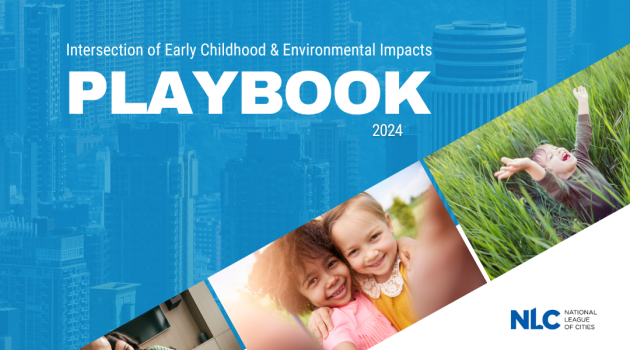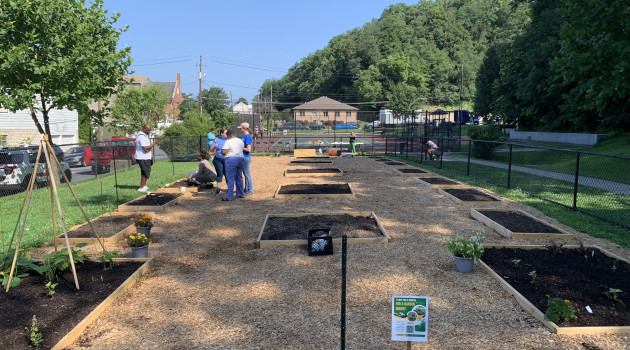
Pine Bluff, Arkansas, a city of approximately 41,253 residents located just south of Little Rock, implemented projects to support healthy brain development in children like planting trees, increasing access to organic produce, and reducing lead exposures.
With funding from the Healthy Babies Initiative (a collaborative effort by Healthy Babies Bright Futures and the Mayors Innovation Project) the city’s Parks and Recreation Department replaced eroded trees and vegetative barriers in three city parks, chosen for their proximity to busy streets and the volume of visitors.
HOW PLANTS BOOST HEALTH
Trees and hedges reduce air pollution levels through interception of airborne particles and/or through uptake of gaseous air pollution. Roadway pollutants include carbon monoxide, nitrogen dioxide (NO2), PM, and polycyclic aromatic hydrocarbon (PAH), among others, where PAHs are known neurotoxins. “We met with community partners to develop a plan of action to reduce toxic exposures by replacing eroded trees and planting vegetative barriers in three of our city parks,” said Pine Bluff’s Mayor Shirley Washington. As a result, the City Parks & Recreation Department planted 10 new trees in high-traffic city parks.
The city also purchased seeds and garden supplies to plant organic produce on municipal land that’s been converted into a community garden. Infants, toddlers and women get more than 50% of their total daily exposure to organophosphate pesticides — one of the neurotoxins with the strongest link to harming babies’ brain development — from pesticide residues on fruits and vegetables.
These planting and gardening projects engaged more than 300 community members. Staff from the State Department of Agriculture’s Forestry Division supported the project by taking soil samples, selecting appropriate tree species for local parks, and sharing tips about seasonal planting so that the garden can grow food year-round.
"Over the next two years, residents will see a lot of progress made on reducing toxic exposures in food through our community garden,” said Mayor Washington. “We will continue working to ensure that our community members have access to healthy outdoor space.”
NEXT STEPS
To complement this work, the city partnered with the Arkansas Department of Environmental Protection to test all water fountains throughout the city’s parks for lead. This work aligns with Mayor Shirley Washington’s Lead-Free Plan, working to eliminate lead exposure to children and the general public.
Interested in learning more? Contact Samuel Glover, Pine Bluff Parks & Recreation Director at sglover@cityofpinebluff.com.
Is your City interested in being part of Healthy Babies Bright Futures’ Bright Cities program? To discuss this and anything else, please contact Bright Cities Program Director, Kyra Naumoff Shields at knaumoff@hbbf.org.


